Last Updated: February 2026
Call center outsourcing cost comparison is a crucial step for businesses looking to enhance customer service while managing expenses effectively.
70% of organizations believe the primary motivation for outsourcing customer support is to save money.
Thus, understanding the cost dynamics of outsourcing versus maintaining an in-house call center becomes essential.
So, let’s dive in!
Table of Contents
What is an outsourced call center?
When you utilize outsourced call center service, you delegate all customer support activities to an external team of skilled and experienced people. Here, they address customer inquiries, conduct surveys, and manage other customer care operations on your behalf.
It allows you to focus on your products and services, sales, marketing, and other critical areas. Call centers use an expert and high-quality workforce that works to improve the customer experience by maximizing your customer support solutions.
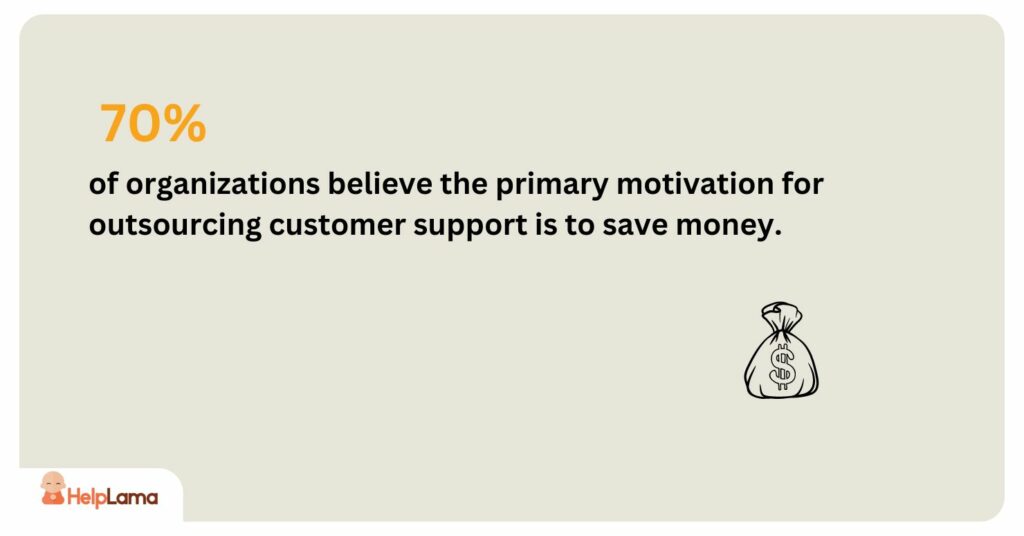
Benefits of Outsourced Call Center
1) Increases working productivity.
Customers expect round-the-clock support and availability however, this might be a challenge because a company’s personnel cannot be available 24/7.
By outsourcing this issue can be resolved as a majority of the call centers provide agents on rotational shifts to provide 24/7 customer support.
2) Improves Retention Rate.
Using call center outsourcing services can enable your firm to expand and simplify customer support operations, resulting in higher customer conversion rates and leads.
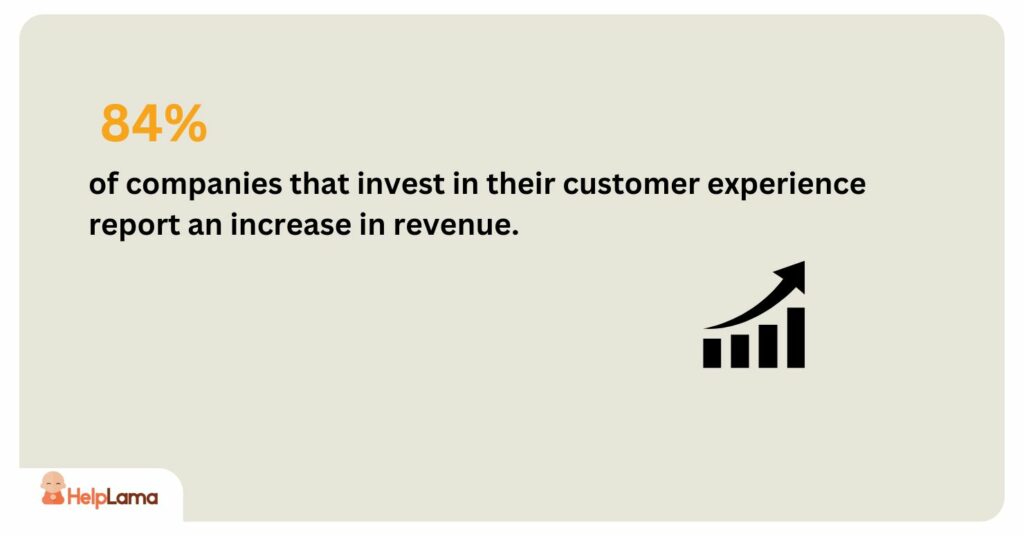
3) Cost Reduction
The cost of outsourcing a call center is less as it helps to save a lot of money on administrative expenditures including office space, hiring, staff wages, training, technology and tools, and other miscellaneous fees.
4) Reports and Analytics.
Monitoring analytics data and call quality is one of the most critical things that call center firms conduct. Outsourced operators deliver real-time call analytics reports that highlight all the facts about clients and how agents are performing, allowing you to recommend adjustments afterward.
You can also listen to call recordings from agents to discover how well your customers are treated and how their problems are resolved.
5) Collaborate with Experts
You can leverage the expertise of niche professionals and advanced technologies to significantly improve the quality of your customer service.
For example, a healthcare center can outsource customer support and benefit by having experts handle appointment scheduling and other support tasks, optimizing operations, and improving overall service quality.
Call Center Outsourcing Cost Comparison Details
Now, let’s take a look at the different aspects that influence call center pricing.1) Personnel
Personnel costs are a significant component of call center expenses, as people need to be adequately compensated to remain in one of the most stressful job roles.
Estimated costs for personnel include:
|
Average call center agent salary |
$31,200 (ranging from entry-level to experienced agents) |
|
Annual training |
$1,000 per agent |
|
Recruiting costs |
$2,500 per agent |
Additionally, benefits such as life insurance, and subsidized lunch or gym memberships can be offered to improve employee satisfaction and retention. For remote or hybrid contact centers, contributing to home internet costs and electricity bills can also be beneficial, as similar expenses would be incurred in a physical office setting.
While these costs may seem high initially, it’s important to note that terminating a call center agent can cost around $31,416. Thus, investing in your employees and looking after their well-being can prevent a costly cycle of high turnover and constant rehiring, ultimately saving money in the long run.
2) Technology
Below is an estimate of the technology costs:
|
Technology Needs |
Estimated Cost |
|
Call center software |
$120 per user per month |
|
Hardware (phones, headsets, etc.) |
$50 each |
|
Business Internet |
$164.99 per month |
|
Network infrastructure (routers, firewalls, etc.) |
$2,000 |
|
Data security tools (password sharing, backup and recovery, etc.) |
$60 per user per month |
3) Data Cost
Data usage costs are an important consideration in call center operations. While inbound call centers typically do not incur costs for receiving calls, budgeting for outbound calls and potential overuse of internet data is essential.
To manage outbound call costs effectively, estimate the number of outbound calls per month and their destinations (local, national, or international). Your provider can then offer a bundled package tailored to your needs, which can help control and predict costs.
Similarly, internet usage costs need careful consideration. While some internet service packages offer unlimited data, it’s crucial to review the fine print for any data cap policies. Overuse charges can quickly escalate, impacting your overall budget.
4) Facilities
Deciding whether to have a main office for your call center team significantly impacts your overall costs.
If you choose to operate from a central office, you will need to budget for rent, utilities, furniture, office supplies, and maintenance. These costs are necessary to create a conducive working environment for your team.
For a small call center office, average costs hover around $2,500 per month. Alternatively, operating a home-based call center can be more cost-effective.
5) Overheads
Call center overheads, such as management costs, insurance, accounting, and legal fees, should be factored into your total business or building costs. Adjust your per-user figures to reflect the number of call center staff.
If your call center will operate as a standalone facility, consult an accountant or financial advisor to understand and manage these expenses.
6) Compliance
Using a VoIP call center typically covers PCI and HIPAA compliance, essential for operating in certain industries. However, you may still need to pay fees to governing bodies, obtain data privacy certifications, or conduct security audits.
Research these requirements before launching your call center to avoid fines and ensure compliance.
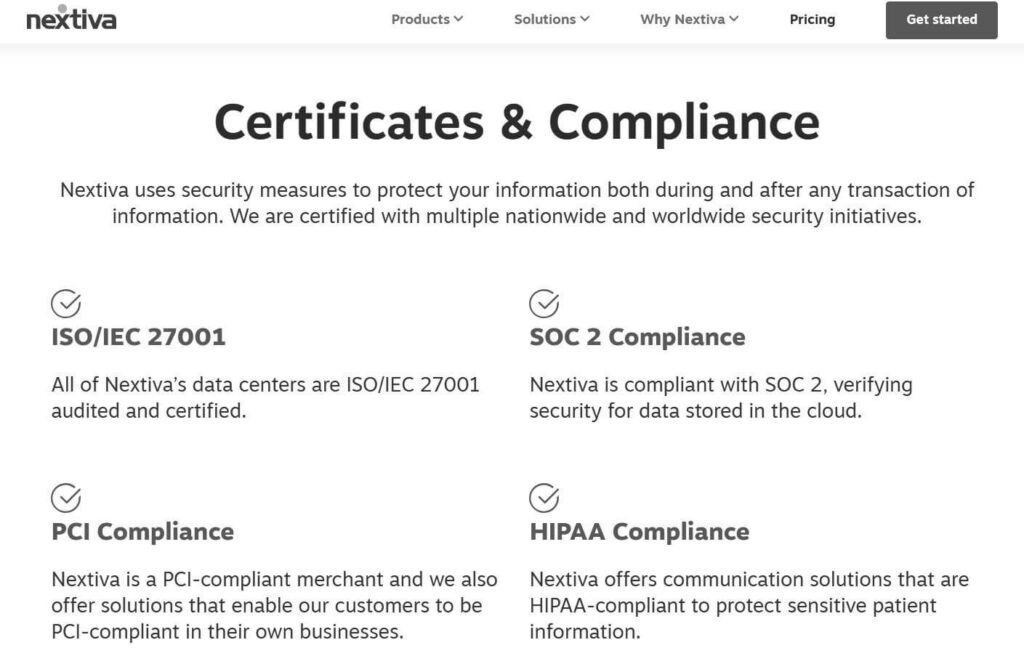
7) Outsourcing
Outsourcing can be a good option if you wish to:
-
- Hire local customer service representatives to fill the late hours.
- Hire a business process outsourcing (BPO) provider.
- Implement self-service and artificial intelligence (AI).
Depending on business requirements, call center outsourcing costs approximately $20 per hour for support. This can be a good investment for basic answering services, but technical support will cost more.
The location of your BPO will have an impact on your call center costs. Below is the average prices per BPO location:
|
Country |
Average Salary per month (USD) |
Time Zones |
|
India |
$216.31 |
IST (UTC+5:30) |
|
The Philippines |
$323.09 |
PHT (GMT+8) |
|
Brazil |
$306.31 |
ACT (UTC-5:00), AMT (UTC-4:00), BRT (UTC-3:00), FNT (UTC-2:00) |
|
Poland |
$1,106.37 |
CET (GMT+2) |
|
Argentina |
$290.89 |
ART (UTC-3:00) |
|
Singapore |
$122,000 to $50,000 |
SGT (GMT+8) |
|
South Africa |
$372.72 |
SAST (GMT+2) |
|
Mexico |
$474.42 |
PT (UTC-7:00), MT (UTC-6:00), CT (UTC-5:00) |
|
Colombia |
$276.89 |
CET (UTC+1:00) |
|
United States |
$2,979.33 (annual $35,752) |
PST, CST, MST, EST |
Source: Rippling
[Back to top]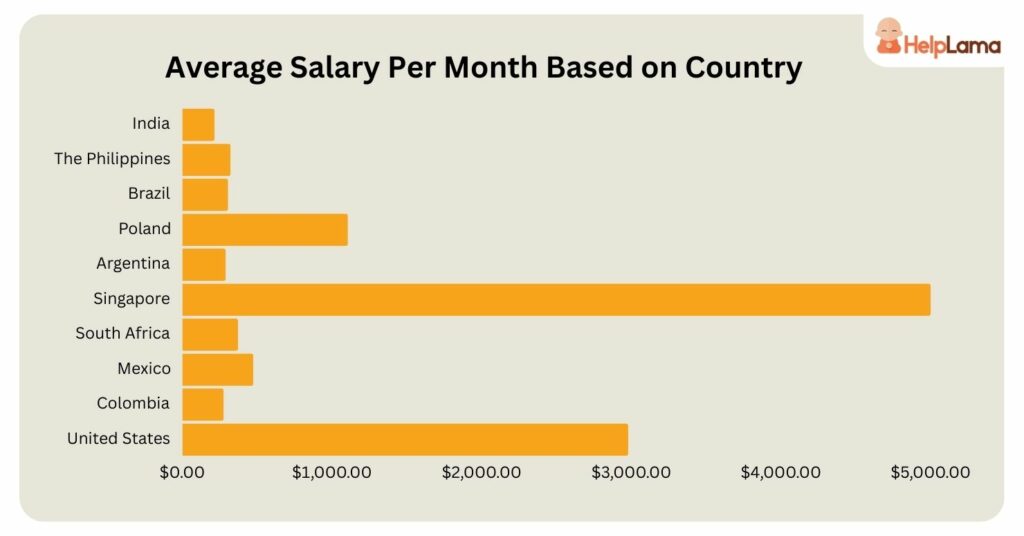
Call Center Software Pricing
In addition to a monthly price for call center software, you need to consider the possible costs of getting your workforce up and operating.1) Subscription Fees
Choosing between a call center and a contact center significantly affects your subscription fees. Here are the key differences:
|
Aspect |
Call Center |
Contact Center |
|
Customer Interactions |
Voice calls only |
Voice, email, live chat, social media, video interactions |
|
Analytics |
Call reports only |
Multichannel analytics |
|
Focus |
Call metrics and KPIs |
Customer satisfaction |
|
Customer Experience |
Isolated |
Integrated |
|
Expansion Capabilities |
None |
Connections to future media channels |
Call center features include:
-
- Interactive voice response (IVR)
- Automatic call distribution (ACD)
- Unified communications
- Call recording
- Predictive dialing
- Inbound/outbound calls
- Softphones
- Post-call surveys
- Call queuing
- Call routing
- Escalation/call management
- Whisper and barge
- Computer telephony integration (CTI)
Contact center software includes all these functionalities and adds extra digital channels (and associated reporting), including SMS, email, web chat, and social media.
Cost Comparison:
1) Call Center Software:
-
- Basic: $50 per user per month (paid annually)
- Advanced: Up to $100 per user per month, depending on term length and additional features
2) Contact Center Software:
-
- Multichannel or Omnichannel: Starts at $100 per user per month
- Costs vary based on features, integrations, and implementation needs
2) Development and Consistent Support
Some integrations may necessitate specialized development work, particularly for complex or non-standard technologies.
This can include internal IT resources or external developers, which adds to the overall cost. You may also have to pay professional service fees to your call center provider. Get a sense of what they might be so you can budget appropriately.
3) Data transmission and API fees
Depending on the volume of data transferred and your integrated platform, there may be additional charges for transporting information across systems. External data transfer, also known as data outflow, is frequently taxed based on bandwidth usage.
Additionally, during the evaluation step, inquire whether any charges apply. Otherwise, you may be faced with a big bill when it comes to implementation time.
Some cloud platforms charge for API calls used in integrations, which adds an additional layer of cost based on utilization.
[Back to top]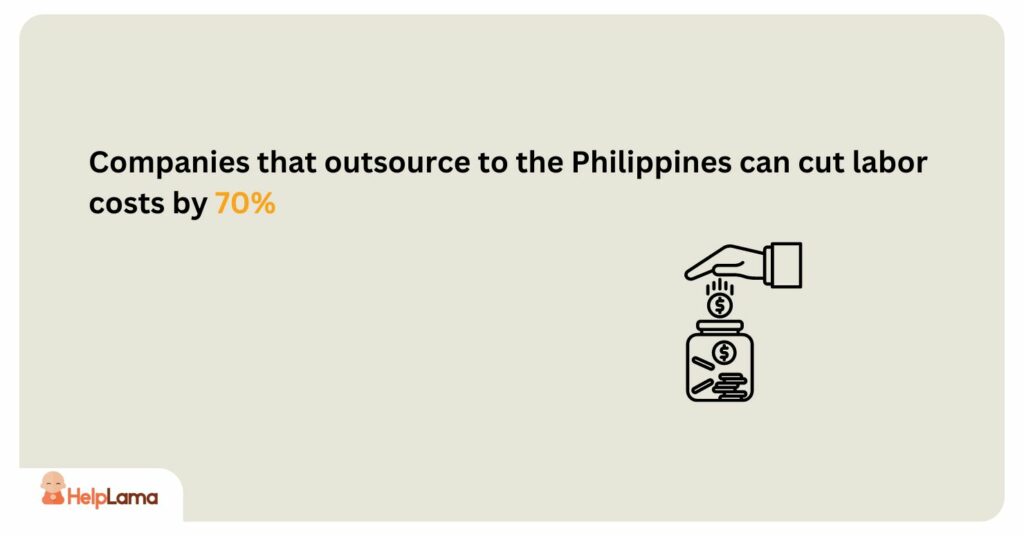
Call Center Outsourcing Comparison: Cloud Vs On-Premises
Call center technology comes in three variants, each with its own pros, cons, and cost considerations.1) Cloud Call Center
|
Pros |
Cons |
|
Lower upfront costs. |
Third-party security and compliance is needed. |
|
Flexible scaling |
Dependent on internet connectivity |
|
Automatic updates and new features |
|
|
Less IT maintenance |
Cost concerns include subscription costs (per agent, per month), data usage, and add-on capabilities (such as call recording, analytics, and workforce management).
2) On-Premises Call Center
|
Pros |
Cons |
|
Control over data and security |
High upfront costs for hardware |
|
Long-term cost savings if all goes well |
Expensive repairs |
|
Ongoing maintenance |
Limited scalability |
|
Strain on internal IT infrastructure |
Cost considerations include initial hardware, software licenses, in-house support wages, maintenance, and repairs.
3) Hybrid Call Center
|
Pros |
Cons |
|
Benefits of both models |
Management of both cloud and on-premises components |
|
Greater flexibility and customization |
Potentially higher complexity |
Cost concerns include the combination of cloud subscription fees and on-premises expenditures such as hardware and IT labor, as well as potential redundant costs.
[Back to top]Tips to Maximize Your Contact Center Budget
1) Know Your Expected Usage (Unlimited vs. Metered Costs)
- Estimate Usage: Calculate your needs for outgoing calls, data transfer, API calls, and bandwidth.
- Plan for High Volumes: For high call volumes or seasonal fluctuations, choose providers with unlimited packages but read the fine print for fair usage policies.
- Prepare for Metered Costs: Accurately predict call volumes if usage is metered, and plan for seasonal flexibility by informing providers about high-demand periods.
2) Buy What You Need, Not What You Might Need
- Scale as Needed: Utilize cloud technology’s scalability, purchasing licenses as required without frontloading.
- Upgrade When Necessary: Upgrade licenses only when roles change, such as promoting an agent to a supervisor.
3) Reduce Waste from Separate Sales Tools and Call Center Services
- Eliminate Unused Features: Evaluate subscriptions to remove features you don’t use.
- Consolidate Functionalities: Use existing software capabilities to avoid duplicate costs, ensuring you only pay for necessary features.
4) Explore How AI Can Improve CX & Reduce Operating Costs
- Enhance Self-Service: Implement AI for customer self-service and to streamline internal processes, reducing agent workloads.
- Utilize AI Features: Leverage AI tools like call recording with sentiment analysis, intelligent virtual agents, predictive call analytics, quality assurance, agent coaching, and interactive voice response to improve service and reduce costs.
5) Get an Accurate Price Quote to Fit Your Objectives
- Tailor Solutions: Customize your call center solution to your specific business goals and needs instead of using generic options.
- Consider All Costs: Evaluate all costs and requirements early to establish a lean, efficient operation that can outperform competitors by being more cost-effective and efficient.
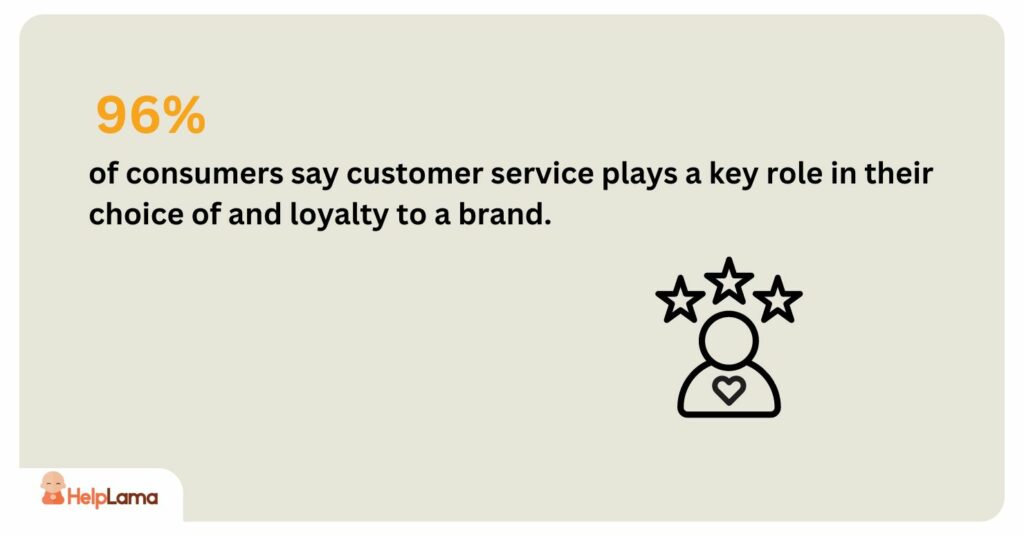
Factors Affecting Call Center Outsourcing Costs
If you’re wondering about ‘how much does it cost to run a call center’, below are the various factors that influence call center costs:
1) Call duration
The call center you choose for your organization may charge you based on the length of the calls. Thus, depending on the nature of the calls, they can be brief or lengthy.
2) Geographical Location
The cost of call center outsourcing can vary according to the provider’s location. For example, outsourcing from India, Vietnam, or Mexico will be less expensive than from Canada or the United States.
3) Call volumes fluctuate
Call volume reaches it’s peak during seasonal business periods or when new items are introduced and falls during downturns. External circumstances (such as a pandemic) also play a significant influence in this scenario, as costs may rise during such times.
4) Infrastructure charges
Infrastructure, such as software, hardware, and other telecommunications devices, has an impact on call center prices. Some suppliers currently have this technology, while others require more investment.
5) Level of customer support
You must first select what type of work you want call center operators to conduct based on your business needs. If you require a highly skilled workforce, it will cost you approximately $50 per operator per hour. It also provides 24-hour help, bilingual support, problem-solving abilities, additional support services, and much more.
6) Knowledge and expertise of agents
Call centers with specialized and skilled agents in your domain will demand greater costs than other suppliers. The amount of experience and training provided by outsourcing organizations contributes to higher-quality customer interactions.
7) Working scalability
When you wish to expand or contract your firm, outsourcing solution providers will charge you proportionally. It relies on the call center’s reputation and experience in your industry.
8) Labor costs
Labor rates are determined by the experience and competence level of call center agents. Highly trained representatives who are fluent in multiple languages and have excellent problem-solving abilities will cost more than less skilled agents. In addition, labor regulations and other levies influence overall costs.
We hope this guide gave you a clear idea of call center outsourcing costs. If you’re looking for an affordable agency to outsource customer service, take a look at Helplama’s services below!
Meet Helplama – The Best Partner for Outsourced Customer Service!
Empower your agents to deliver top-tier support effortlessly with Helplama. Elevate customer satisfaction and efficiency through intuitive guidance.

Key Features
- Customized Agent Matching: Advanced algorithms pair you with agents whose skills and experience perfectly match your specific customer support needs.
- Scalability: Helplama scales with your business, whether you need a small team or a large support network.
- Geographically Focused Chat Help: Provide exceptional live chat assistance on your website, regardless of your location or language.
- 24/7 Availability: Agents are available around the clock, ensuring your customers receive help whenever they need it.
- Multichannel Support: Helplama equips agents to handle inquiries via email, phone, chat, and social media, ensuring consistent support across all touchpoints.
- Risk-free services: Get a 100% money-back guarantee, no questions asked.
Conclusion
In summary, understanding the nuances of call center outsourcing cost comparison is crucial for making informed decisions.
By evaluating the various factors, such as personnel, technology, facilities, compliance, and overheads, businesses can gain a clear picture of outsourced call center pricing.
Additionally, we recommend exploring Helplama’s services as they offer US-based agents with niche expertise.
So, what are you waiting for? Click here to get an estimate and outsource your customer support to Helplama now!


